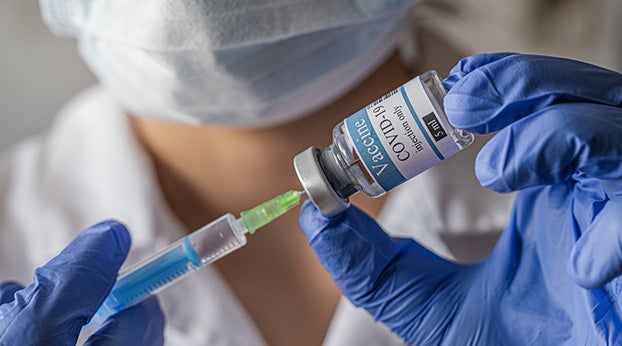As vaccinations slack again, mutant virus variants still threaten
Published 11:19 am Tuesday, June 8, 2021
|
Getting your Trinity Audio player ready...
|

Dr. Kevin Kavanagh
If you think the pandemic is over, you’re wrong; we must still prepare for the worst, because of mutated versions of the coronavirus that can spread quickly among unvaccinated people, retired physician Kevin Kavanagh of Somerset writes for the Louisville Courier-Journal.
“Similar to the flu, immunity to last year’s strain does not guarantee immunity to next year’s,” Kavanagh writes. “The reinfection may be lessened, but unlike the flu, even a mild to moderate Covid-19 infection is of concern since this virus can have lasting effects on almost every organ of the body.”
Think natural immunity from having Covid-19 will help you? It’s a matter of degree and time, and neither is known, Kavanagh warns: “No one knows what level of immunity will provide substantial protection for an infection, and even mild to moderate infection of this virus can pose significant harm.”
That means even people who have had Covid-19 should get vaccinated, 90 days after their last symptoms, the federal Centers for Disease Control and Prevention advises. “The plan is to boost your immunity to the wild type (original) virus to a much higher level,” Kavanagh explains.
While currently available vaccines offer varying levels of protection against variants, some do not, Kavanagh notes, quoting Senate testimony from Dr. Anthony Fauci: “In the South African study conducted by Johnson & Johnson, they found that [unvaccinated] people who were infected with wild type were exposed to the variant in South Africa, the 351. It was as if they had never been infected before. They had no protection.”
Last fall, in Brazil, the Amazon River metropolis of Manaus reached 76 percent herd immunity, “but over the winter holidays, the city was crushed again by an even larger wave caused by the P.1 immune escape variant,” Kavanagh writes. . . . A recent study of blood donors from Manaus reported to have found that one in six of those infected with the coronavirus were reinfected with the P.1 variant, suggesting reinfections are all too common.”
The fewer people who are vaccinated in an area, the better chance it has of becoming a source of a Covid-19 variant outbreak. The relatively low vaccination rates in states south of Kentucky pose such a threat, health experts warn. “We have the knowledge to avoid another devastation by this virus,” Kavanagh writes. “Simply, become vaccinated.”






